Refine search
Actions for selected content:
23990 results in Ancient history
Select bibliography
-
- Book:
- Jewish War under Trajan and Hadrian
- Published online:
- 05 September 2014
- Print publication:
- 18 September 2014, pp 429-471
-
- Chapter
- Export citation
Chapter 5 - Hadrian and Pius
-
- Book:
- Jewish War under Trajan and Hadrian
- Published online:
- 05 September 2014
- Print publication:
- 18 September 2014, pp 278-428
-
- Chapter
- Export citation
Acknowledgements
-
- Book:
- Jewish War under Trajan and Hadrian
- Published online:
- 05 September 2014
- Print publication:
- 18 September 2014, pp vii-vii
-
- Chapter
- Export citation
Jewish War under Trajan and Hadrian - Half title page
-
- Book:
- Jewish War under Trajan and Hadrian
- Published online:
- 05 September 2014
- Print publication:
- 18 September 2014, pp i-ii
-
- Chapter
- Export citation
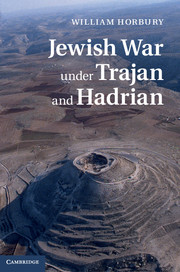
Jewish War under Trajan and Hadrian
-
- Published online:
- 05 September 2014
- Print publication:
- 18 September 2014

The Greek World in the 4th and 3rd Centuries BC
-
- Published by:
- Jagiellonian University Press
- Published online:
- 05 September 2014
- Print publication:
- 31 December 2012
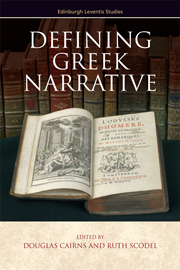
Defining Greek Narrative
-
- Published by:
- Edinburgh University Press
- Published online:
- 05 September 2014
- Print publication:
- 24 March 2014
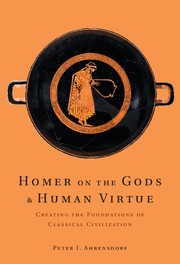
Homer on the Gods and Human Virtue
- Creating the Foundations of Classical Civilization
-
- Published online:
- 05 September 2014
- Print publication:
- 22 September 2014
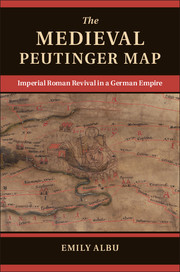
The Medieval Peutinger Map
- Imperial Roman Revival in a German Empire
-
- Published online:
- 05 September 2014
- Print publication:
- 29 August 2014
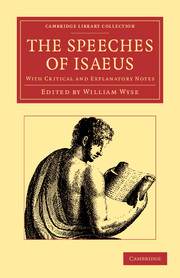
The Speeches of Isaeus
- With Critical and Explanatory Notes
-
- Published online:
- 05 September 2014
- Print publication:
- 06 June 2013
- First published in:
- 1904
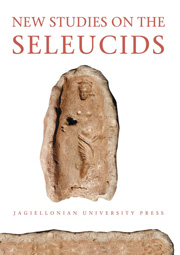
New Studies on the Seleucids
-
- Published by:
- Jagiellonian University Press
- Published online:
- 05 September 2014
- Print publication:
- 31 December 2011
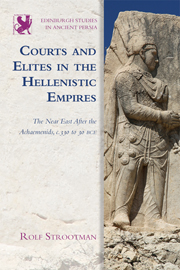
Courts and Elites in the Hellenistic Empires
- The Near East After the Achaemenids, c. 330 to 30 BCE
-
- Published by:
- Edinburgh University Press
- Published online:
- 05 September 2014
- Print publication:
- 08 April 2014
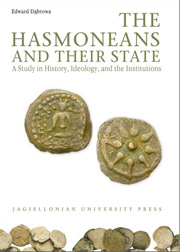
The Hasmoneans and their State
- A Study in History, Ideology, and the Institutions
-
- Published by:
- Jagiellonian University Press
- Published online:
- 05 September 2014
- Print publication:
- 31 December 2009
Indexes
-
- Book:
- Tacitus: <I>Agricola</I>
- Published online:
- 28 May 2018
- Print publication:
- 04 September 2014, pp 349-358
-
- Chapter
- Export citation
Works cited
-
- Book:
- Tacitus: <I>Agricola</I>
- Published online:
- 28 May 2018
- Print publication:
- 04 September 2014, pp 333-348
-
- Chapter
- Export citation
Appendixes
-
- Book:
- Tacitus: <I>Agricola</I>
- Published online:
- 28 May 2018
- Print publication:
- 04 September 2014, pp 331-332
-
- Chapter
- Export citation
List of maps and figures
-
- Book:
- Tacitus: <I>Agricola</I>
- Published online:
- 28 May 2018
- Print publication:
- 04 September 2014, pp vi-vi
-
- Chapter
- Export citation
Preface
-
- Book:
- Tacitus: <I>Agricola</I>
- Published online:
- 28 May 2018
- Print publication:
- 04 September 2014, pp vii-viii
-
- Chapter
- Export citation
List of abbreviations
-
- Book:
- Tacitus: <I>Agricola</I>
- Published online:
- 28 May 2018
- Print publication:
- 04 September 2014, pp ix-xi
-
- Chapter
- Export citation
CORNELII TACITI DE VITA IVLII AGRICOLAE
- from CORNELII TACITI DE VITA IVLII AGRICOLAE
-
- Book:
- Tacitus: <I>Agricola</I>
- Published online:
- 28 May 2018
- Print publication:
- 04 September 2014, pp 41-64
-
- Chapter
- Export citation
